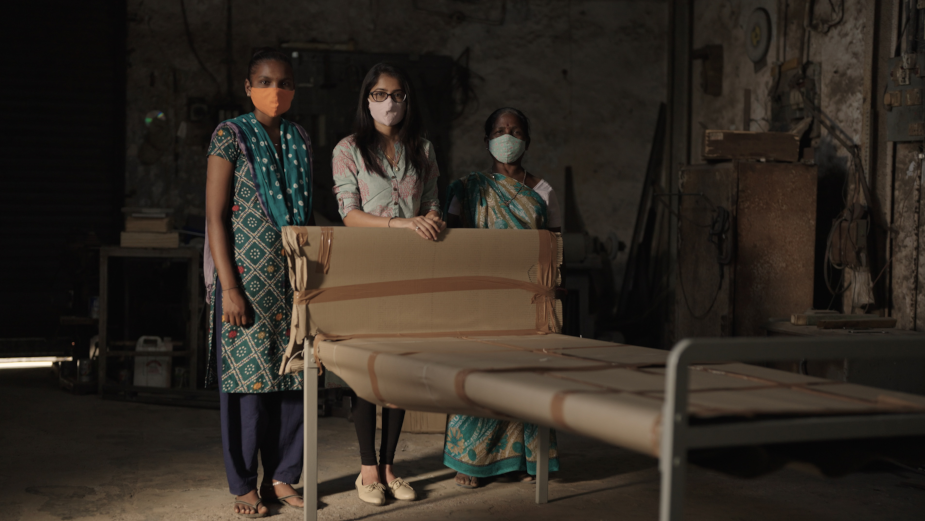
How Covid-19 Waste Can Be Upcycled into Hospital Beds

Cheil WW India, in collaboration with India-based Eco Eclectic Technologies (EETech), has used covid-19 pandemic waste material from face masks and PPE to make a hospital bed.
India has suffered from a chronic shortage of hospital beds for many years, a situation exacerbated by the pandemic. Thousands have died due to this shortfall. At the same time, 100 million masks every month are being thrown into landfill.
In an innovative initiative that aims to tackle this shortage and embrace the circular economy concept, The Novel Bed Project was created by Cheil India in partnership with EETech, launching a revolutionary approach to using waste to make hospital beds.
The partnership with EETech is intended not only to address the shortage of hospital beds but to come up with a long-term solution - a design template for others to follow. Cheil created the concept and product design which is underpinned with EETech’s innovative technology.
To find out what the bed promises for the future, LBB’s Alex Reeves spoke to Cheil India CCO Emmanuel Upputuru.
LBB> When did this project begin? Was there a brief from EETech or did it emerge more organically?
Emmanuel> The second wave of the pandemic shook every Indian – probably there was no one who wasn’t touched by it in one way or the other. The pandemic brought to the fore issues we never dealt with – it was like war. There were two issues that were staring at us: covid waste and the shortage of beds. Once we arrived at the idea of using one issue to solve the other, we knew the best person to partner with us was Dr. Binish Desai and his pioneering approach to up-cycling..
LBB> You're responding to two problems - PPE waste and a shortage of hospital beds. What was the initial realisation that combined these two?
Emmanuel> Both were products of the same pandemic. It was interesting that on one hand there was a shortage of beds, and on the other hand the masks were littering the streets and landfill sites. Like in the case of all ideas, we just had to connect the two dots.
LBB> How did you work out that it was a feasible idea?
Emmanuel> We had extensive discussions with Dr. Binish Desai to make the idea work. He is a true pioneer and world-leader when it comes to what can be used to up-cycle and turn into new materials.
LBB> What is each part of the bed made from? Is it 100% made from masks?
Emmanuel> While masks were a big part of the Novel Bed project, we used all kinds of waste. Here’s what went into making it: 1007 used masks, 37 discarded PPE kits, 119 kg coffee waste, 1.5 kg eco-friendly lamination paper.
LBB> What was the biggest challenge in making this project a reality and how did you overcome it?
Emmanuel> To make sure that the Novel Bed can actually be used in a hospital to treat patients. We did the due diligence by talking to a head doctor at Valsad, Gujarat and finding out standard expectations from a hospital bed. We then translated all the requirements into the design so that it ended up as a truly ‘open’ project any health authority/hospital can utilise.
LBB> Can you tell us more about IDA's involvement? What was their part in this?
Emmanuel> IDA is a micro social enterprise which provides livelihood to women in rural areas. IDA in Sanskrit means to create something. It aims to create products out of waste to save our mother earth.
LBB> How have people in India and around the world responded?
Emmanuel> This project just started. The design technology for the Novel Bed has been made accessible to all collaborators and the initial response from doctors and hospitals has been hugely positive.
LBB> In the future it would be great for thousands of hospital beds to be made this way. What needs to happen for that to be a reality?
Emmanuel> The hospital equipment industry and procurement needs to be more open-minded in its approach – less motivated by legacy relationships and deals and more innovative and open to what’s possible. That way, when a crisis hits us like the second wave of the novel coronavirus, we are already agile enough to scale and meet demands quickly.









